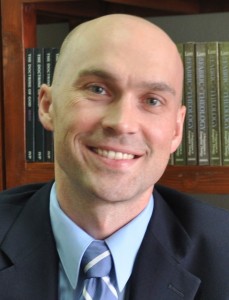By Evan D. Burns
Andrew Fuller was gifted at engaging in theological controversy. Near the end of his “Reply to Philanthropos” in Section IV, “On the Death of Christ,” Fuller discloses his heart for engaging in controversy. He exemplifies how to contend for truth with conviction without being contentious:
As I did not engage in controversy from any love I had to the thing itself, so I have no mind to continue in it any further than some good end may be answered by it…. There is a point in all controversies beyond which they are unprofitable and tedious. When we have stated the body of an argument, and attempted an answer to the main objections, the most profitable part of the work is done….
A reflection or two shall conclude the whole. However firmly any of the parties engaged in this controversy may be persuaded of the goodness of his cause, let us all beware of idolizing a sentiment. This is a temptation to which controversialists are particularly liable. There is a lovely proportion in Divine truth; if one part of it be insisted on to the neglect of another, the beauty of the whole is defaced; and the ill effects of such a partial distribution will be visible in the spirit, if not in the conduct, of those who admire it.
Further, Whatever difficulties there may be in finding out truth, and whatever mistakes may attend any of us in this controversy, (as it is very probable we are each mistaken in some things,) yet, let us remember, truth itself is of the greatest importance. It is very common for persons, when they find a subject much disputed, especially if it is by those whom they account good men, immediately to conclude that it must be a subject of but little consequence, a mere matter of speculation. Upon such persons religious controversies have a very ill effect; for finding a difficulty attending the coming at the truth, and at the same time a disposition to neglect it and to pursue other things, they readily avail themselves of what appears to them a plausible excuse, lay aside the inquiry, and sit down and indulge a spirit of scepticism. True it is that such variety of opinions ought to make us very diffident of ourselves, and teach us to exercise a Christian forbearance towards those who differ from us. It should teach us to know and feel what an inspired apostle acknowledged, that here we see but in part, and are, at best, but in a state of childhood. But if all disputed subjects are to be reckoned matters of mere speculation, we shall have nothing of any real use left in religion.[1]
___________
[1]Andrew Gunton Fuller, The Complete Works of Andrew Fuller, Volume 2: Controversial Publications, ed. Joseph Belcher (Harrisonburg, VA: Sprinkle Publications, 1988), 510-11.
____________
 Evan Burns (Ph.D. candidate, The Southern Baptist Theological Seminary) is on faculty at Asia Biblical Theological Seminary, and he lives in Southeast Asia with his wife and twin sons. They are missionaries with Training Leaders International. He also works as the Director of the M.A. in Global Leadership program at Western Seminary.
Evan Burns (Ph.D. candidate, The Southern Baptist Theological Seminary) is on faculty at Asia Biblical Theological Seminary, and he lives in Southeast Asia with his wife and twin sons. They are missionaries with Training Leaders International. He also works as the Director of the M.A. in Global Leadership program at Western Seminary.

